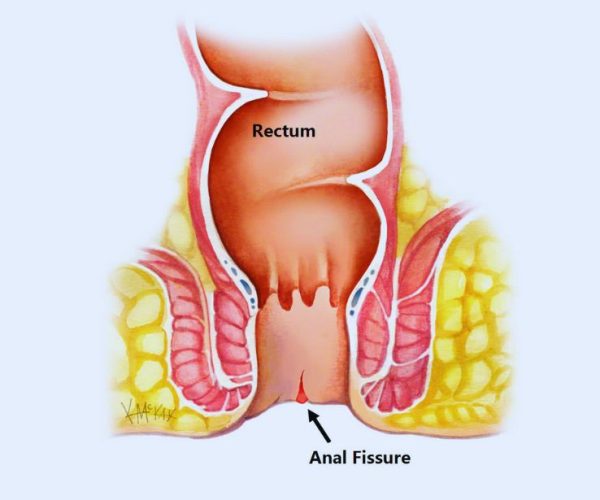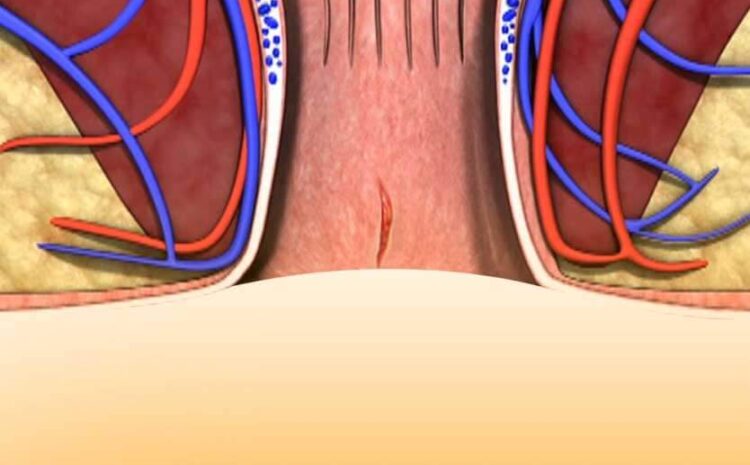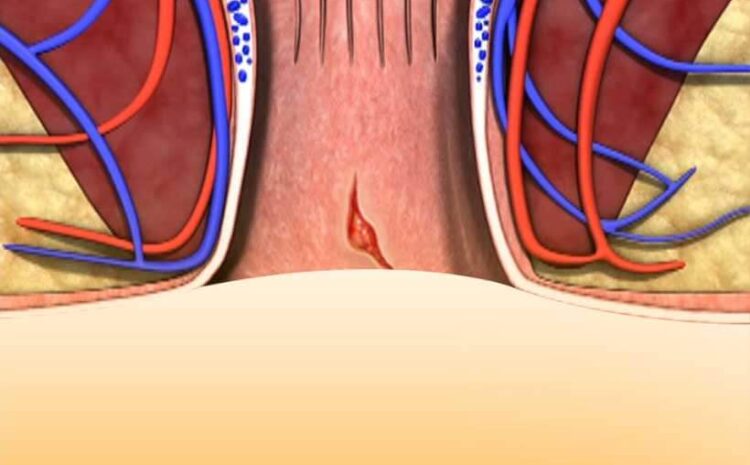Fissures Treatment in Hyderabad

WHAT ARE FISSURES?
Anal fissures are small tears or cracks in the lining of the anus, the opening through which stool passes out of the body. These fissures can occur in the skin surrounding the anus and can cause discomfort, pain, and sometimes bleeding during bowel movements. Anal fissures are often caused by excessive straining during bowel movements, which can occur due to constipation. Hard or large stools can stretch the anal opening and cause the skin to tear. Other factors that may contribute to the development of anal fissures include chronic diarrhea, inflammatory bowel disease, and sexually transmitted infections.
In most cases, anal fissures can heal on their own within a few weeks with proper self-care and lifestyle changes. This includes maintaining good hygiene, adopting a high-fiber diet to prevent constipation, staying hydrated, and avoiding prolonged sitting on the toilet. Over-the-counter creams or ointments can help soothe the area and promote healing.
CAUSES OF FISSURES
Anal fissures are small tears or cracks in the lining of the anal canal, which can cause pain, bleeding, and discomfort during bowel movements. The primary causes of anal fissures include:
- Constipation: One of the most common causes of anal fissures is constipation. When stool becomes hard and difficult to pass, it can put pressure on the anal canal, leading to tears in the delicate anal tissue during bowel movements.
- Diarrhea: On the other end of the spectrum, chronic diarrhea can also cause anal fissures. Frequent liquid or loose stools can irritate and damage the anal area.
- Straining during bowel movements: Straining excessively during bowel movements, often due to constipation or hard stools, can lead to increased pressure on the anal canal, making it more susceptible to fissures.
- Anal trauma: Injuries to the anal region, such as rough or forceful penetration during sexual activity or inserting foreign objects into the anus, can cause fissures.
- Childbirth: In some cases, anal fissures can occur after childbirth, particularly if there were complications during delivery or tears in the perineum.
- Inflammatory bowel diseases (IBD): Conditions like Crohn’s disease and ulcerative colitis can lead to inflammation in the digestive tract, including the anal canal, making it more vulnerable to fissures.
- Anal infections: Certain infections around the anus or in the rectal area can contribute to the development of fissures.
- Poor anal hygiene: Not keeping the anal area clean and dry may lead to irritation and increase the risk of fissures.
SYMPTOMS OF FISSURES
Alarming situation is an Acute Blood loss to shock levels can more certainly be attributes to Internal Hemorrhoids seen to be bleeding actively. (Bleeding Hemorrhoid)
Most Hemorrhoids respect to conservative therapy such as :
- Sitz Bath
- Suppositories
- Medications to soften the Stool
- Bed rest
- Internal Hemorrhoids which don’t respond to conservative therapy.
- Internal Hemorrhoids, which remain permanently prolapsed are the Best treated by Surgery only
- Milder degree of prolapsed or enlargement with pruritis ani or intermittent Bleeding can be successfully handled by Laser and Surgery.
- External Hemorrhoids which become actually thrombosed are treated by the Laser Ablation.
- Hematoma extraction of the clot and compressing insisted are follows clot removal.
FISSURES TREATMENT
The treatment for fissures, specifically anal fissures, typically involves a combination of medical and lifestyle interventions. Anal fissures are small tears or cuts in the lining of the anal canal, often caused by passing hard or large stools. They can be painful and may lead to discomfort during bowel movements. Here are some common treatments for fissures:
- Fiber-rich diet: Consuming a diet high in fiber helps soften the stools and makes them easier to pass, reducing the risk of further injury to the anal canal. Good sources of fiber include fruits, vegetables, whole grains, and legumes.
- Increased water intake: Staying well-hydrated is essential for maintaining soft stools. Drinking enough water throughout the day can prevent constipation and reduce strain during bowel movements.
- Stool softeners and laxatives: In cases of acute constipation, stool softeners or mild laxatives may be prescribed by a doctor to alleviate the pressure on the anal canal.
- Sitz baths: Taking warm sitz baths (sitting in a few inches of warm water) for 10-15 minutes several times a day can help soothe the area, improve blood flow, and promote healing.
- Surgery: Surgery is typically reserved for chronic or severe cases of anal fissures that do not respond to conservative treatments. The most common surgical option is a lateral internal sphincterotomy, where a small incision is made in the anal sphincter to reduce tension.

Acute Fissure

Chronic Fissure
Yes Clinic
Your Path to Relief and Recovery
Welcome to Yes Clinic, where compassionate care meets expert treatment for all your piles-related concerns.

